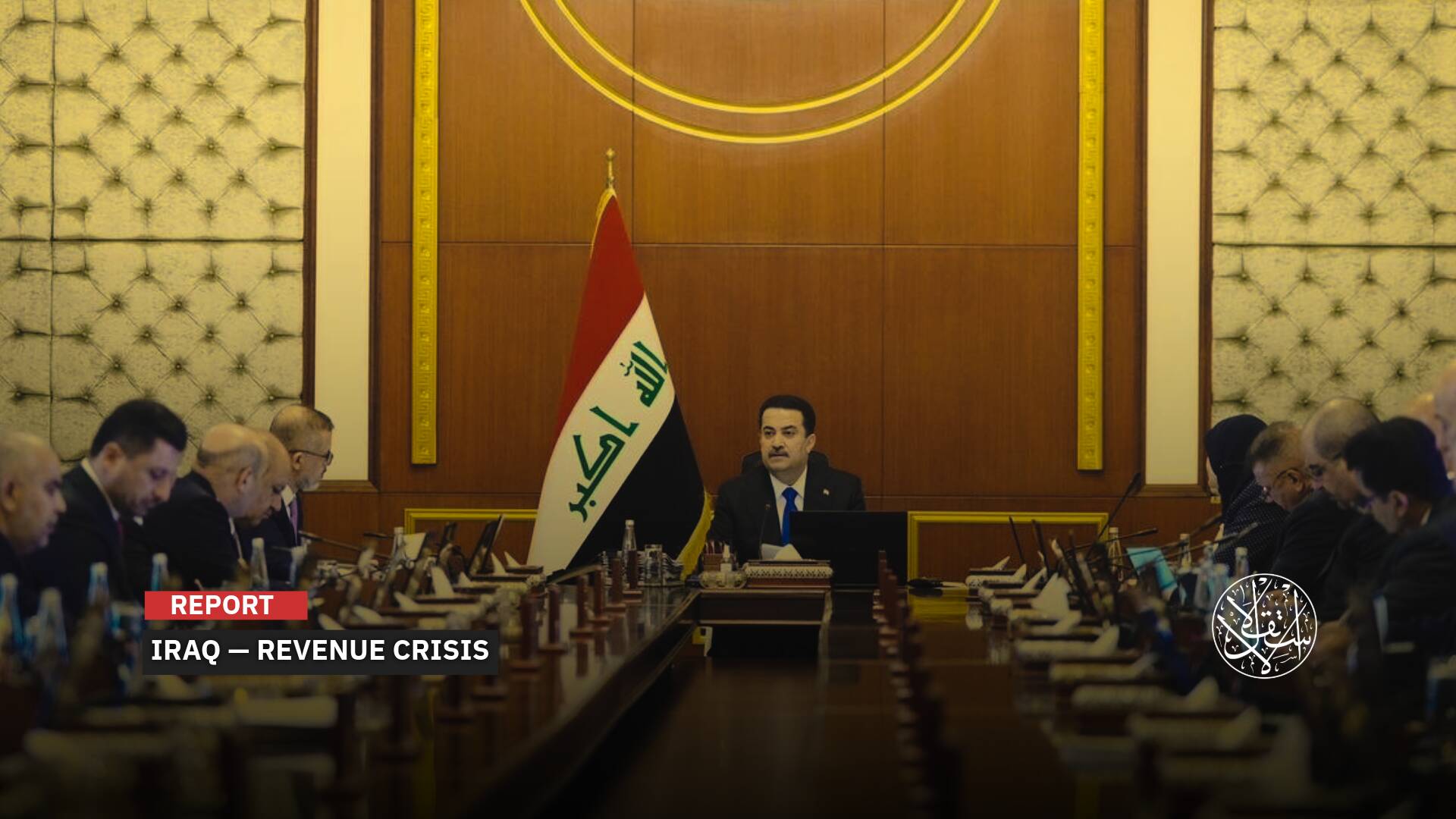How Does the Syrian American Council Shape Decision-Making in Washington?
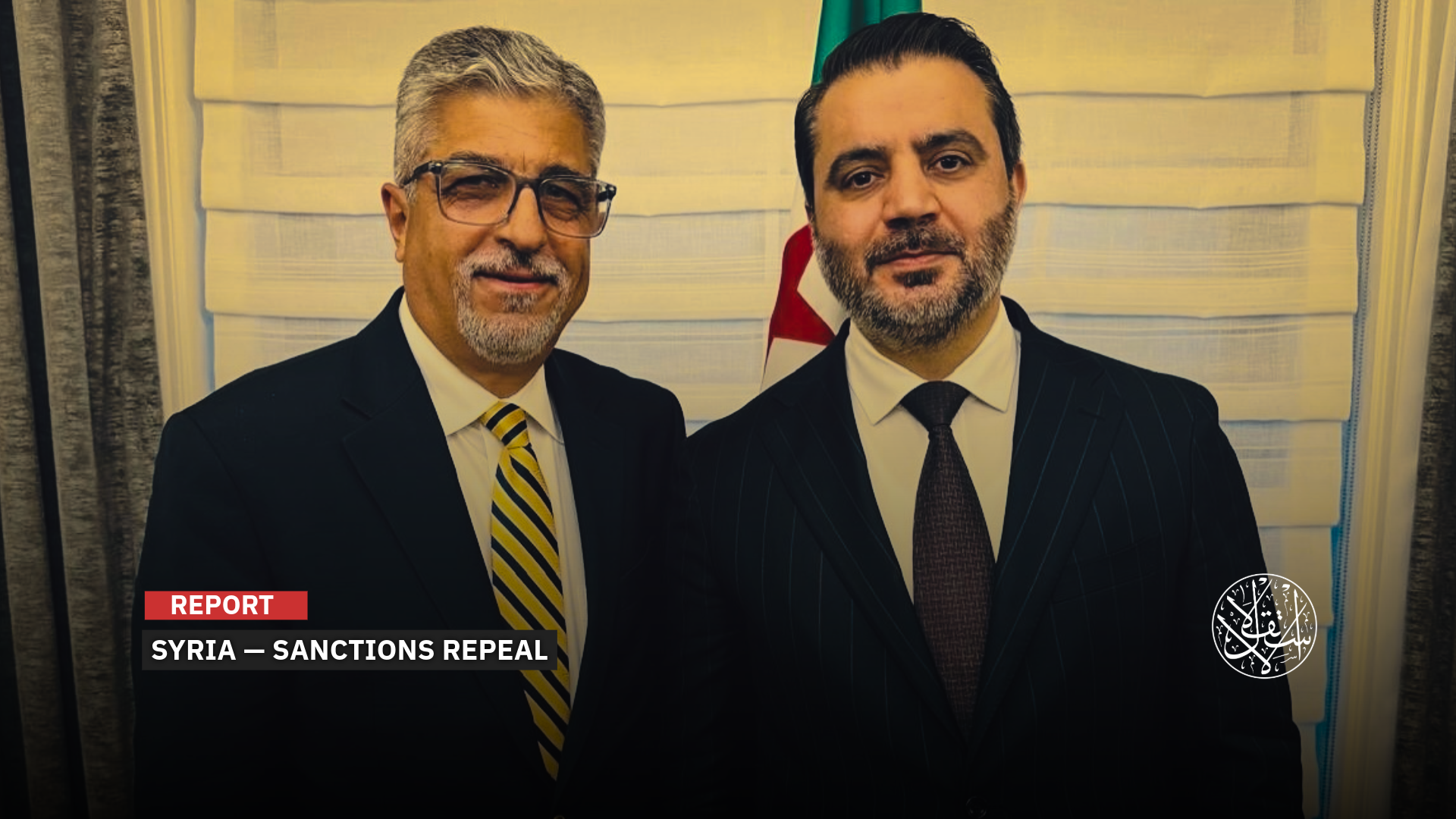
The Syrian American Council prioritizes the interests of both Syrian and American communities.
The Syrian American Council has intensified its efforts to influence policymakers in Washington, aiming to expedite the lifting of sanctions imposed on Syria in a bid to help restart the engines of recovery in a new Syria.
On September 12, 2025, Syria’s transitional president, Ahmed al-Sharaa, received a delegation from the Syrian American Council in the capital, Damascus, with Foreign Minister Asaad al-Shibani also in attendance.
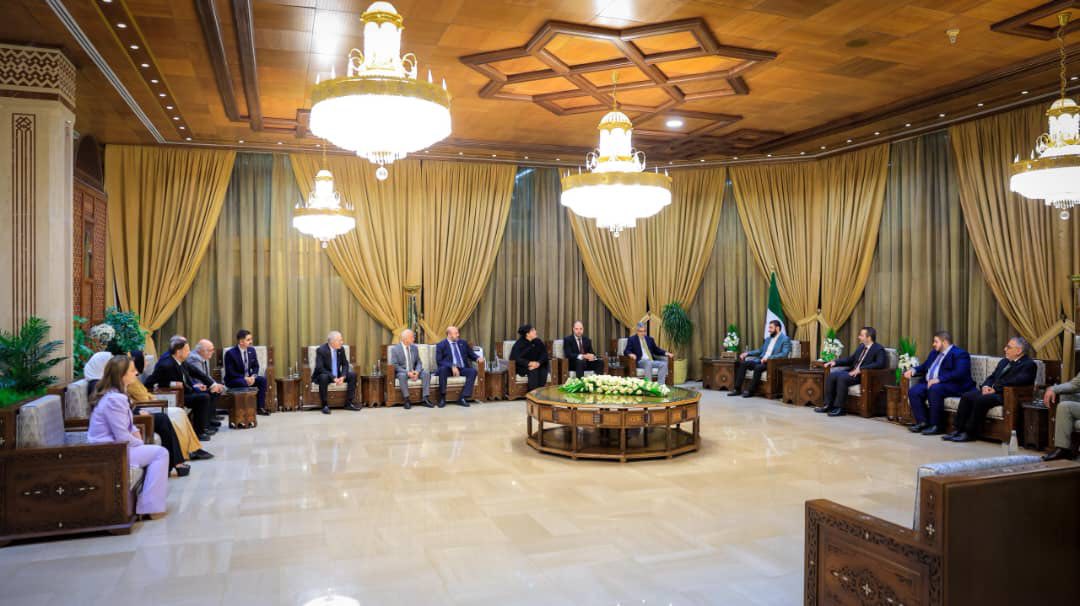
The Syrian American Council
The Syrian state news agency, SANA, reported that President Ahmed al-Sharaa expressed his gratitude and appreciation to the Syrian diaspora in the United States for their dedicated efforts in supporting national causes.
Al-Sharaa also praised the initiatives of the Syrian American Council, which he said aim to support efforts to lift sanctions on Syria and create a more open environment conducive to reconstruction and development, according to SANA.
The Syrian American Council is currently headed by Farouk Bilal, who resides in Washington. The council is a Syrian-American lobbying group that describes itself as a secular democratic advocacy organization. It was established on November 20, 2005.
Throughout the Syrian revolution, the council advocated in Congress, urging lawmakers to oppose the now-toppled Bashar al-Assad regime. It also served as a bridge between Syrian opposition bodies and the U.S. administration.
The council, along with other advocacy groups, played a role in drafting the Caesar Act, the sanctions' legislation imposed on Syria since 2020.
The law, which remains in effect despite the fall of al-Assad’s regime, was originally designed to isolate al-Assad government politically and economically and to deter international engagement with it.
The council has launched numerous advocacy campaigns to shape American public opinion and continues to push for the lifting of U.S. sanctions on Syria. In July 2025, the council introduced a proposal in Congress to repeal the Caesar Act, with bipartisan backing. The proposal was formally attached as an amendment to the U.S. Department of Defense budget bill, though it ultimately failed to pass through Congress.
On September 3, 2025, the Syrian American Council held a series of high-level meetings inside Congress, joined by members of the Syrian-American community and U.S. civil society organizations, to lobby lawmakers for a full repeal of remaining sanctions on Syria.
Speaking in a live broadcast on August 27, 2025, Farouk Bilal argued that maintaining sanctions on Syria does not serve Washington’s interests in achieving a stable and secure Middle East, adding that such stability is directly tied to Syria’s recovery.
He further stated that keeping the sanctions in place hampers economic recovery, undermines security, and delays the country’s resurgence, all of which affect the wellbeing of the population and slow the return of displaced people and refugees.
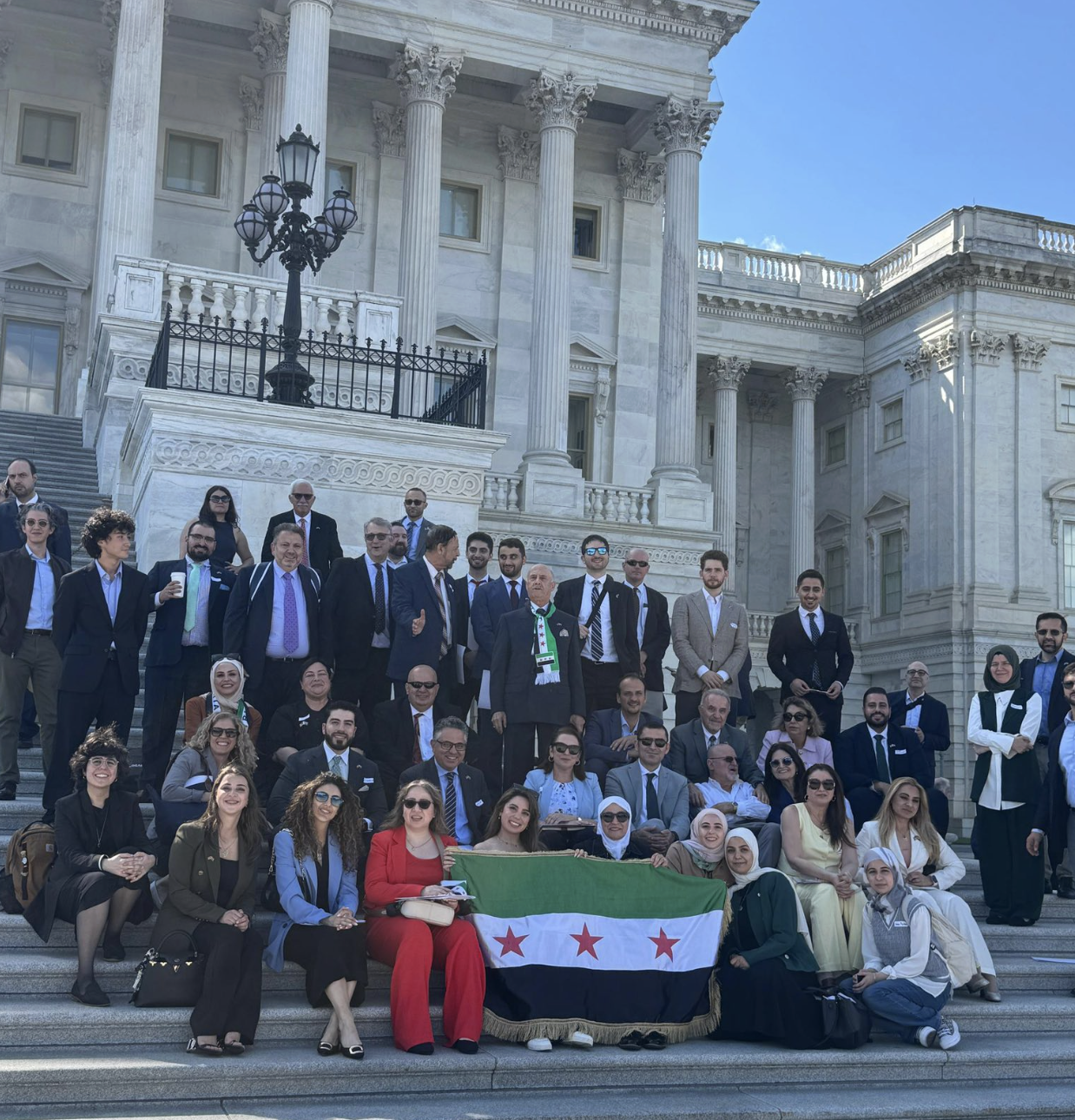
Advocacy Campaign
Since the fall of the Bashar al-Assad regime on December 8, 2024, U.S. sanctions have emerged as the primary obstacle to Syria’s economic recovery and the start of reconstruction efforts with international backing, as the Caesar Act continues to hold everything back.
Although President Donald Trump formally lifted the bulk of U.S. sanctions on Syria in early July 2025, this move primarily affected the sanctions imposed after the outbreak of the revolution in 2011, as well as those dating back to 1979, when Washington first sanctioned the regime of Hafez al-Assad, and again in 2003, three years after Bashar inherited power from his father.
The Trump administration’s apparent openness toward Syria’s new leadership remains limited, however, as the Caesar Act is still in effect, leaving countries reluctant to engage economically with Damascus due to the restrictions it imposes.
This has led Senator Roger Wicker, chair of the Senate Armed Services Committee, to propose repealing the Caesar Act by including it in the draft of the 2026 defense budget bill.
For his part, Congressman Joe Wilson wrote in a post on X on September 3, 2025, following his meeting with the Syrian American Coalition, “Grateful to meet with Syrian Americans including @tarekktelehmd from the @SyriaSAAPP to discuss the critical work of repealing the Caesar Act. Thank you for your efforts to support Free Syria!”
Wilson urged his fellow lawmakers in Congress to vote in favor of lifting the sanctions, saying such a move would help ensure Syria remains united.
In response, the Syrian American Council is waging an advocacy campaign in support of the Syrian people, intensifying discussions with influential members of the U.S. Congress to remove what it sees as the greatest obstacle to Syria’s economic revival and the launch of reconstruction.
The council, which boasts a strong network of members across the United States, continues to leverage these connections in service of Syria, their country of origin.
A visit to Damascus by two key members of the Congressional Foreign Relations Committee, Joe Wilson and Jeanne Shaheen, marked the culmination of years of work by the Syrian American Council, which had long encouraged both lawmakers to travel to Syria and meet with the new leadership and members of the transitional government.
Notably, both Wilson and Shaheen went on to introduce draft legislation to repeal the Caesar Act at the end of 2025.
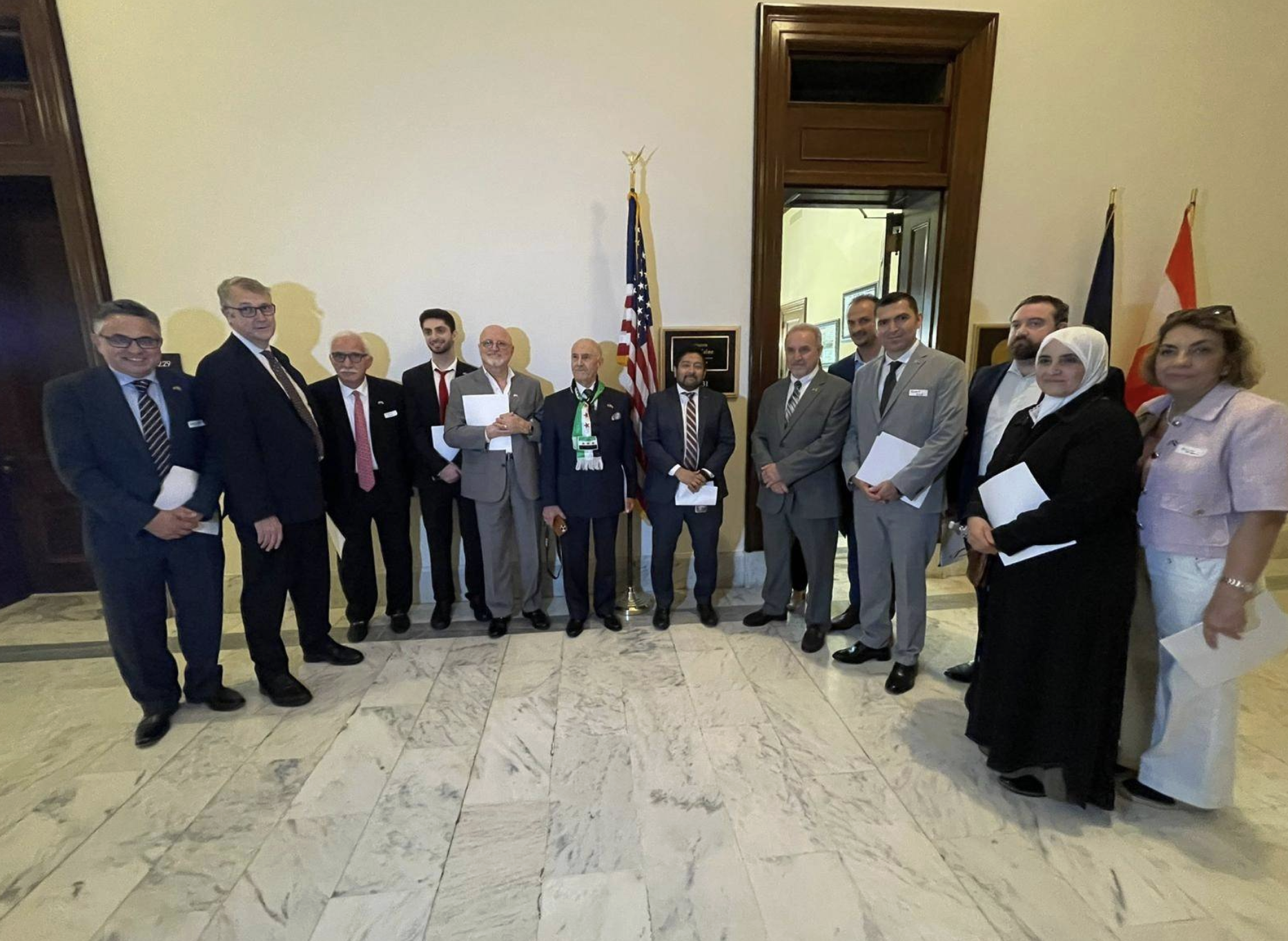
Campaigning in Congress
Zaki Lababidi, head of the Syria office of the Syrian American Council, led the council’s delegation in a meeting with Syria’s transitional president, Ahmed al-Sharaa, to express support for the Syrian people in their pursuit of national unity and the full sovereignty of the Syrian government over its territory.
Speaking to Al-Estiklal from Arizona, Lababidi said, “The visit took place during a dangerous time for Syria, marked by Israeli aggression and Tel Aviv’s interference in Syria’s internal affairs, as well as the failure of the SDF to take concrete steps toward implementing the March 2025 agreement with Damascus. The SDF is stalling, waiting for opportunities that would favor its secession.”
Lababidi noted that “the Syrian government, backed by several countries, has prevented the partition of Syria.”
“Since the start of the Syrian revolution, the Syrian American Council has stepped up its activities and succeeded in pushing through the Caesar Act, which crippled al-Assad regime economically.”
“The Syrian American Council also contributed to other pieces of legislation, including the passage of the Captagon Trafficking Eradication Act after al-Assad turned Syria into a narco-state, as well as helping to pass the Anti-Normalization Act at a time when neighboring countries were moving toward normalizing relations with al-Assad,” he continued.
“Since Syria’s liberation, the Syrian American Council has been pushing to remove sanctions imposed through presidential executive orders. These were indeed lifted under President Trump’s authority. As for the Caesar Act, which was passed by Congress, under U.S. law the president can suspend it, and President Trump did so at the beginning of 2025, but that suspension must be renewed every six months.”
“That’s why we’re now working with Congress to repeal the Caesar Act entirely. If it’s repealed, the doors will open for Syria’s economy and for Arab and international investment, paving the way for the Syrian people to rise again after 60 years of suffering under Baathist rule and the brutality of Hafez and Bashar al-Assad.”
According to Lababidi, “The Syrian American Council has an office in Washington that works daily on Capitol Hill to keep Syria on the congressional agenda and push forward the interests of both the Syrian and American peoples, particularly by encouraging U.S. investment in Syria as an alternative to aid.”
“On September 3, 2025, the Syrian American Council organized an emergency advocacy day for the Syrian people, attended by 100 Syrians from across the United States who came to Washington. The day included meetings with members of Congress to advocate for the repeal of the Caesar Act and urge representatives to vote in favor of it. It was a successful day, as we managed to sway some lawmakers from opposing the repeal to supporting it. This is part of the council’s tireless efforts,” he concluded.
Sources
- President al-Sharaa receives delegation from the Syrian American Council in Damascus [Arabic]
- Syrian American Council: Proposal to repeal the Caesar Act included in U.S. defense budget [Arabic]
- Senator Joe Wilson from Damascus: Repealing the Caesar Act is a priority for the Trump administration [Arabic]
- In first visit to Syria since Assad’s ouster, two members of U.S. Congress arrive in Damascus [Arabic]










